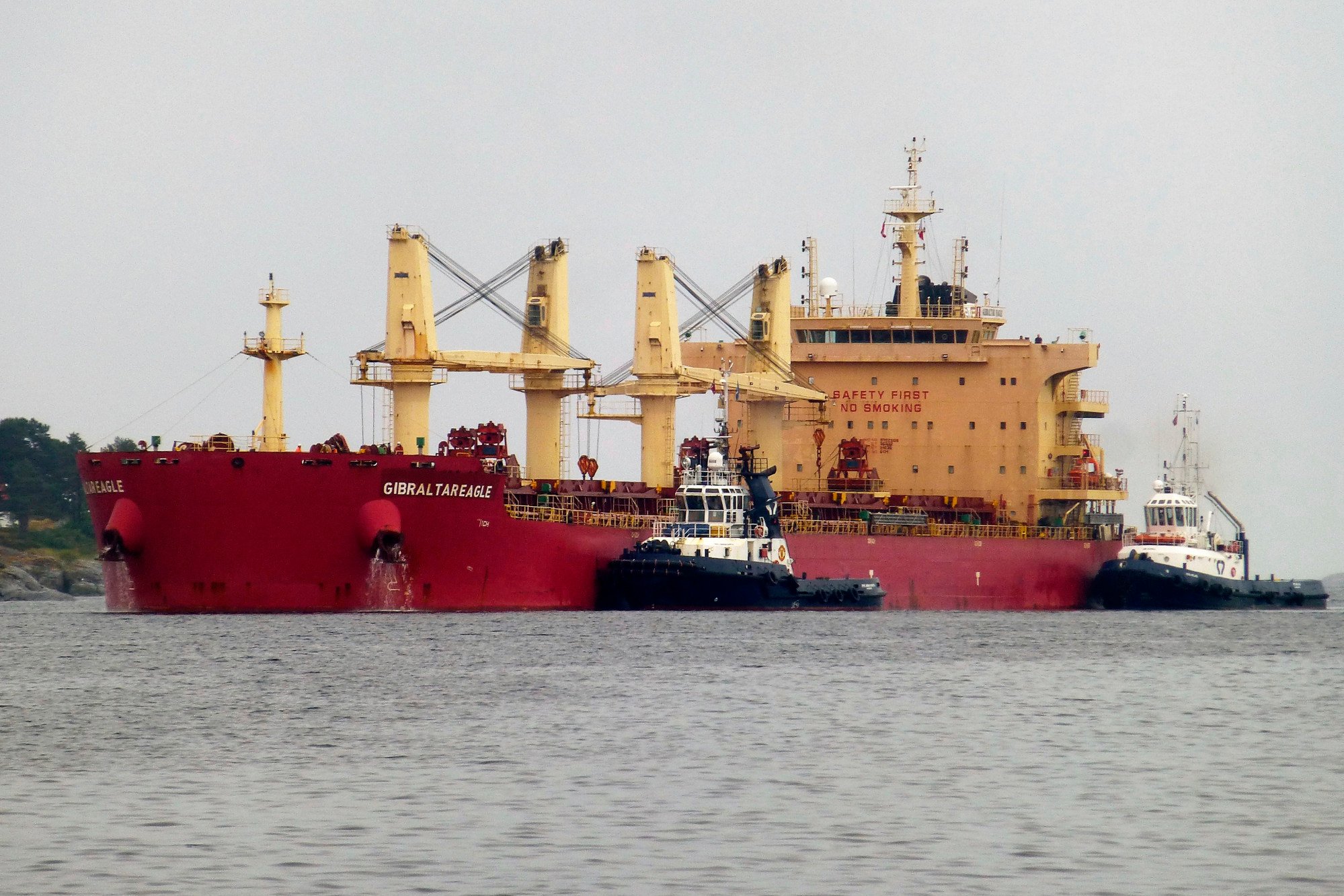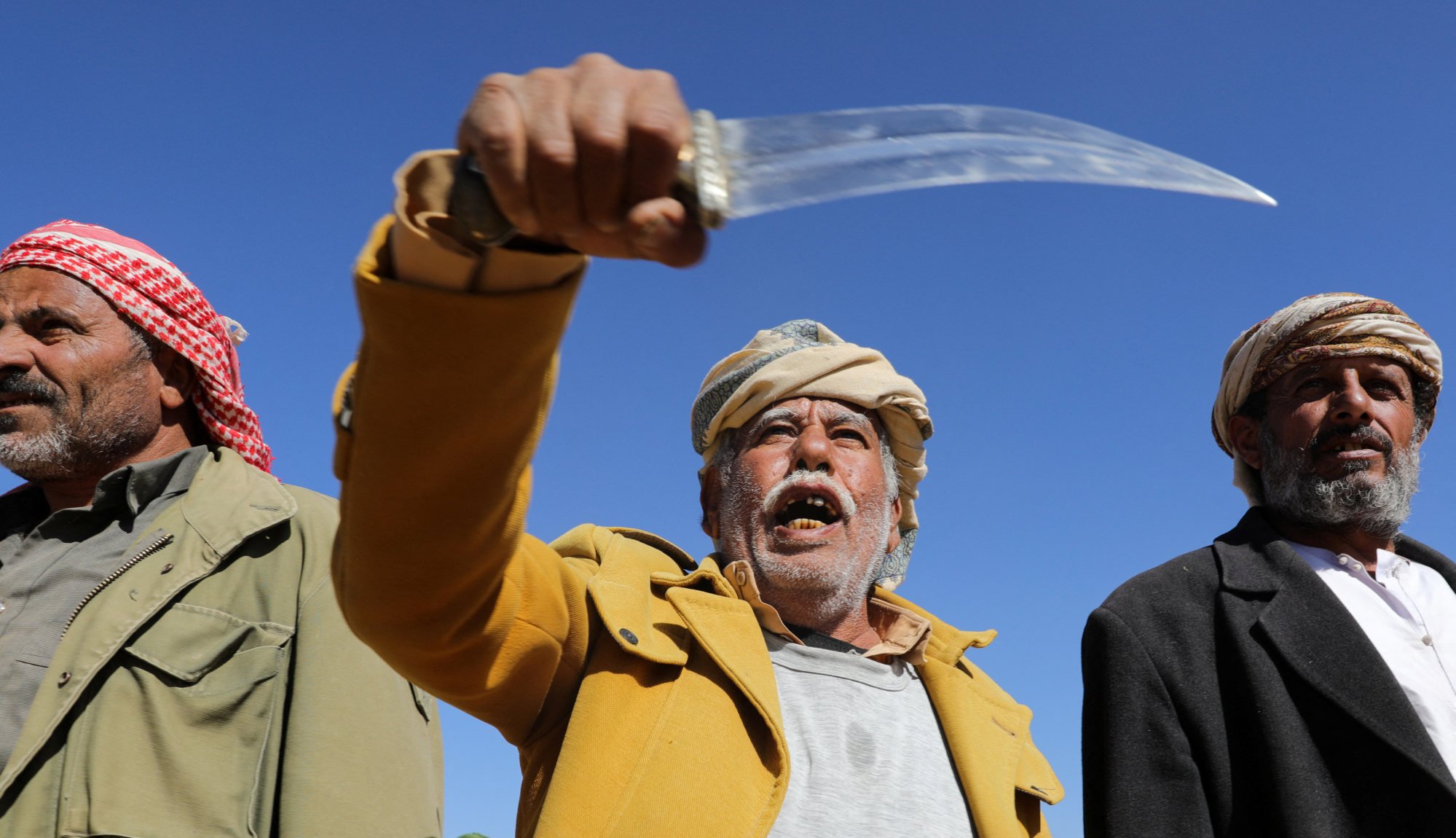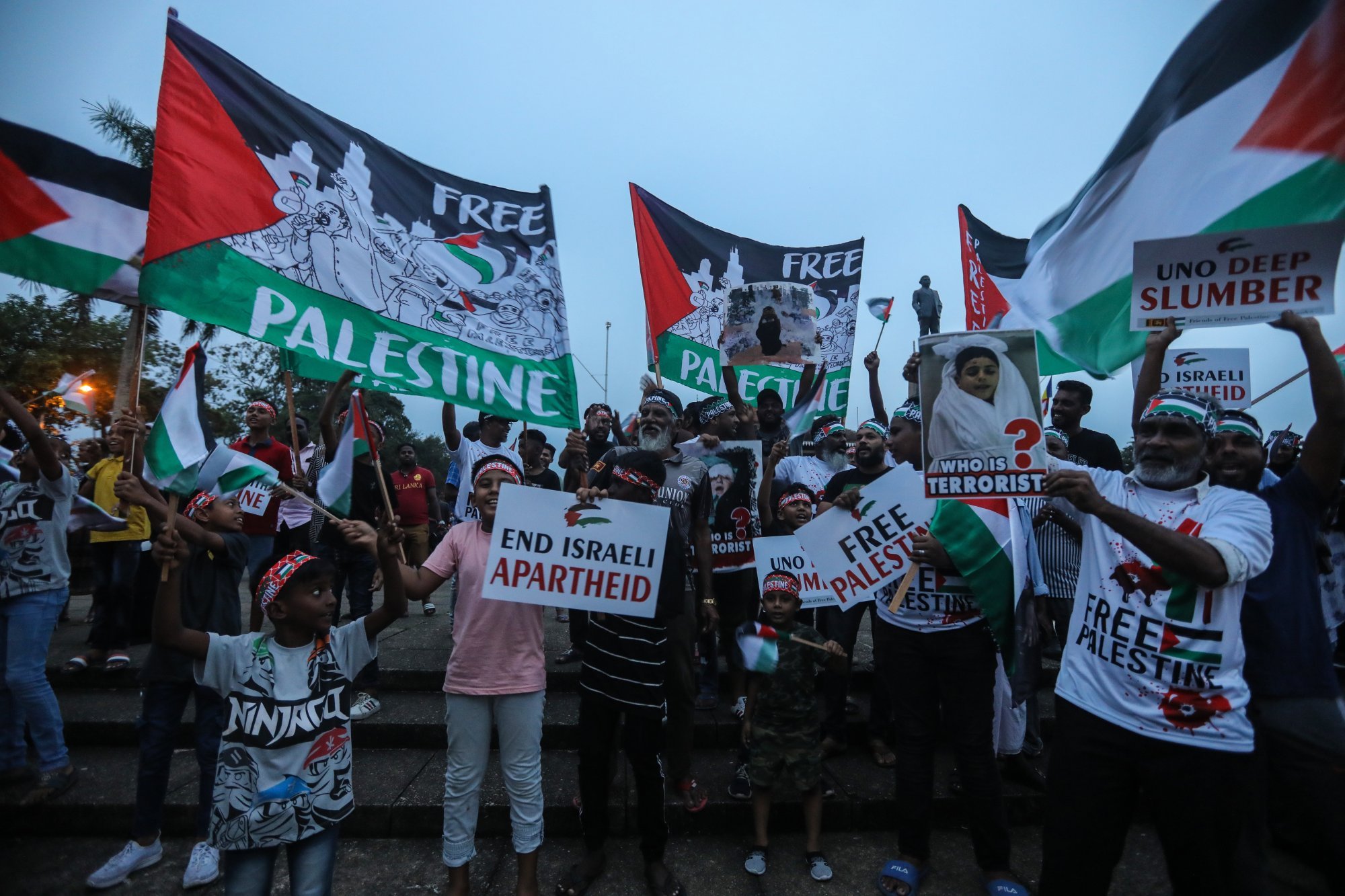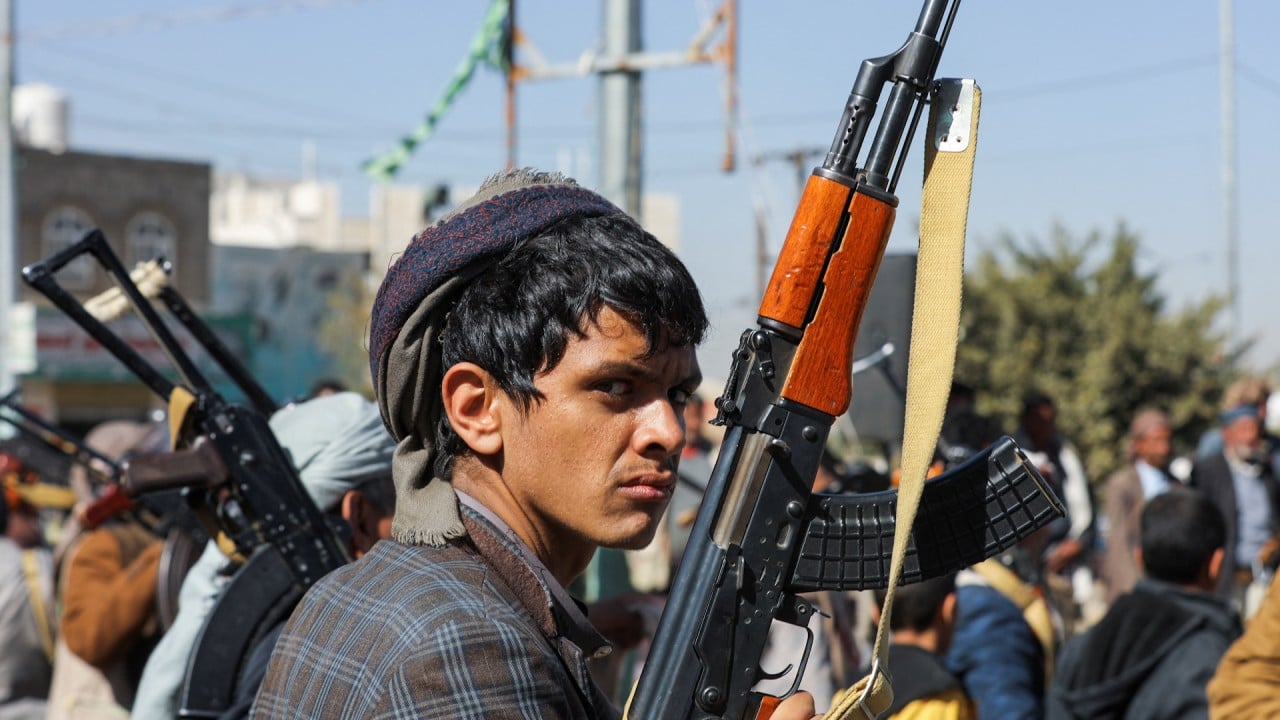Sri Lankans in Yemen fear ‘being caught in the crossfire’ as Colombo plans to join US-led attacks on Houthis
Isuru Alagiyawanna, 32, arrived in Yemen just six months ago in search of a better life away from the debilitating economic crisis of his native Sri Lanka. But as Colombo plans to join the US-led operations against Yemen’s Houthi rebels, he fears “being caught in the crossfire”.
Early this month, Sri Lankan President Ranil Wickremesinghe announced that the country had decided to send a navy vessel to join the multinational Operation Prosperity Guardian, aimed at securing commercial shipping lanes in the Red Sea against Houthi attacks.
Following the escalation of the Israel-Gaza conflict, the Houthis, which control the Yemeni capital Sanaa and the northwestern regions bordering the Red Sea, in November launched attacks on “Israel-linked” vessels sailing through the shipping lanes, which normally see hundreds of billions worth of cargo pass through them each year.

Close to 30 vessels sailing through the Red Sea have been targeted since the Houthi attacks began. Last week, the United States and its allies began retaliating by launching air and sea strikes.
Sri Lankans like Alagiyawanna, who work in Houthi-controlled areas of Yemen, fear their safety will be at risk once the Sri Lankan vessel joins the coalition’s efforts.
“If word gets around among the locals that Sri Lanka is sending a ship to join the US forces to fight against the Houthis, there will be repercussions. When we go out to stores and mix with the local people, if word gets around that I am a Sri Lankan [it may lead to] issues,” he told This Week in Asia.
Alagiyawanna, who works for a shipping company, said “life and people were peaceful” before the Red Sea conflict. But he was worried that, in the absence of a Sri Lankan mission in Yemen, there would be no immediate help available in an emergency.
“We need an exit visa to leave Sanaa, and it takes about twelve hours to reach Aden”, he said, referring to the area controlled by the government of Yemen. “The [civil conflict within the country] has destroyed [the] main routes, so detours have to be taken when travelling. There are lots of military checkpoints, and baggage was checked multiple times along the route.”
Alagiyawanna said he knew of at least 15 more of his compatriots also living in Yemen and was in touch with some of them.
Abdul Munhim, another Sri Lankan working in Hodeida, a Houthi-controlled port city facing the Red Sea, echoed Alagiyawanna’s thoughts.
“If [Sri Lanka] sends a ship, our lives may be threatened here. People here know we are from Sri Lanka,” said Munhim, 25.
Munhim lives and works at a shipping company close to the Red Sea port that was under US attack.
“Last week there were two or three bombs. At night I heard a huge noise,” he told This Week in Asia. “Some ships are still at berth. The cargo operations are ongoing. But containers are not making port calls.”
Munhim said he was aware of six more Sri Lankans in Hodeida, although he had no contact with them.

According to Niluka Kadurugamuwa, director general of public diplomacy at the Sri Lankan ministry of foreign affairs, Sri Lanka has no mission in Yemen but the embassy in Oman is concurrently affiliated with Yemen and the Sri Lankan ambassador to Oman is monitoring the situation.
“If the necessity arises, then they will assist the Sri Lankans in that situation,” he told This Week in Asia. The ministry was not able to immediately confirm the number of Sri Lankans in Yemen.
Meanwhile, navy spokesman Captain Gayan Wickramasuriya said they were prepared to send one ship at the moment, but it was not confirmed when it would join the US operation. The costs would depend on the specific ship to be deployed, he said, “but only day-to-day operational costs of the ship will be incurred, no additional costs would be involved”.

Changing foreign policy?
Historically, Sri Lanka has sided with the Palestinian cause and the people of Gaza, but since Colombo decided to join the US mission against the Houthis, some believe it signals a change in the country’s stance on the wider Israel-Gaza war.
But Uditha Devapriya, chief analyst at Factum, a Sri Lanka-based foreign policy think tank, does not think so.
“Fundamentally, Sri Lanka’s support for Palestinians has not changed. But its foreign policy has wavered over these little issues. The government clearly wants us to think that it sees the Red Sea operation as distinct and separate from its support for the Palestinian cause,” he said.
Thousands of Sri Lankan workers set to depart for Israel despite war
Thousands of Sri Lankan workers set to depart for Israel despite war
According to Devapriya, Colombo’s bilateral ties with Israel wavered over time with each political regime due to economic or defence reasons.
At the United Nations’ December vote for a ceasefire in Gaza, Colombo voted in favour of Palestinian interests.
The country, however, remains the only Asia-Pacific nation to physically send a vessel to join the US operation.
“Even though on the surface this signals a shift in Sri Lanka’s foreign policy, it actually, in my opinion, [shows] the unpredictable nature of Sri Lanka’s foreign policy,” Devapriya said, adding that the country was attempting “a balancing act”.
The deployment of the vessel alone might not affect the Sri Lankans in Yemen but, coupled with the country’s decision to send thousands of Sri Lankan workers to Israel, this could have a wider impact on Sri Lankan employees in the Middle East, he added.


